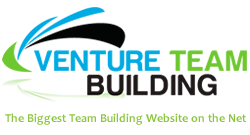The aim of this workshop is for groups to discuss and agree on the definition and purpose of teams in the work context. This includes describing key characteristics and understanding how these characteristics can help form effective teams and overall team success.
Resources required: Flip-chart paper and coloured markers, team definition and effective team template (see below).
Group Size: 8 to 15 ideally
Total Time: 70 minutes
- 25 minutes for Part 1: What are teams?
- 35 minutes for Part 2: Characteristics of effective teams
- 10 minutes to review and debrief
Facilitators’ notes:
Part 1 – What are teams?
Open the workshop by explaining that you are going to talk about the types of teams and the key characteristics of effective teams. Ask your group, “What is a team?”
Allow a few responses. Then ask, “Of course, there are many different types of teams. What types are you familiar with? What is their purpose?” Again, allow a short discussion (example responses: sports, social, organisational, project, department, etc).
Turn the discussion to the organisational level. “Is an organisation/department/project (adapt to your audience) the same as a team?”
Split the group into smaller sub-groups, hand each group a sheet of flip chart paper and marker pen and ask them work together to come up words/terms they associate with or that describes a team.
Once you have finished, allow time for someone in each group to read out what they came up with and explain their reasoning?
Alternatively, you can learners to shout out ideas and list these on a whiteboard. This is then followed by a quick explanation for each word or term.
As a group they must now come up with their own definition of what a team is in one paragraph. Allow five minutes to complete this. If you have a larger group, split into two. After they have come up with their definition, get someone to read it out.
Next read the following definition of a team:
“A team is a small number of people with complementary skills who are committed to a common purpose, performance goals, and approach for which they are mutually accountable.”
(Katzenbach and Smith, 1993)
Discuss this definition and ask whether it matches the groups. Ask what parts of this definition stand out e.g. complementary skills, common purpose, mutually accountable etc.
Working with this definition, how does this group make up a team? What is your common purpose? How are you accountable to one another?” Allow a discussion to follow to clarify what type of team they are and their overall objective. Here are a few examples:
- a project team working to deliver results
- an organisational team working to achieve its mission
- a department team fulfilling its role in the organisation
Part 2 – Characteristics of Effective Teams
Ask your learners the 3 following questions:
- YOURSELF: what skills, qualities, knowledge and experience do you bring to the team?
- YOUR TEAM: What do you value most about being a part of this team? What skills, values, methods, or traditions are its strength?
- TEAM REQUIREMENTS: think about what it takes to build successful teams, what are the key qualities of a team, without which effectiveness would not be possible?
Hand each person a sheet of paper and pen, allow them time to go away (around 15 minutes) to reflect and answer the questions (this should be done on their own).
When they return pair them up with someone in the group and get them to discuss what they came up with during reflection. They must then create a paired listing for question 3. At the end of the discussion, each pair should have an established list of characteristics of an effective team.
Here are some examples of characteristics. Use this as a template and present to the group for discussion after they have completed their paired list.
- Vision or purpose– A vision is a clear, concise statement of purpose that inspires confidence and motivates involvement and commitment.
- Shared commitment– If each member is motivated to work for the vision, each works to their full potential to see that the group achieves success. In so doing, the work becomes its own reward.
- Clear roles and responsibilities– Each team member knows what they have to do and knows the roles of others and how they all work together to form the whole.
- Trust– With clear commitment and roles, each person knows they can rely on others. With high trust, team members are more willing to face challenges and support one another.
- Mutual accountability– This creates a supportive environment within the team, and the performance of the team improves in the presence of this type of mutual support and cohesion.
- Celebrate individual and team success— Keep the whole in view, and work to support each other. Team success is valued by all and team members must work together to get to the end result.
- Concern for group tasks and process– Team members are skilled at raising both specific task issues and issues that explore how the team itself is functioning.
- Address challenges – The team strives to maintain a sense of openness and to solve problems as they arise. If there is a creative difference then they discuss it and come up with a solution that will benefit the team as a whole and the success of the task/challenge/project.
- Inclusive decision making– Effective teams allow an appropriate level of group participation in decision making – they share ideas and are open to new suggestions.
- Communication and feedback— Team members give and receive feedback effectively. They are positive in their approach and constructive in their manner.
Ask how the two lists compare. What is common? What is different? Are there any characteristics from their list that they would like to add or change? Anything on the template that is not applicable to the group?
Review and debrief
Use questions to engage your learners and facilitate the learning process. Allow them to think for themselves and use questions to guide them in the right direction and draw out key learning points.
As Socrates says in Plato’s ‘Protagoras’, “My way toward the truth is to ask the right questions”.
Here are a few questions to use:
- Why is important to understand what a team is?
- What qualities do you bring to the team?
- How important is it to have different qualities within the team?
- What is the most important aspect of
- How can you ensure your team is effective with your next task/project or challenge?
- Reflecting on the workshop, I want you to identify one thing you can take away and why?



